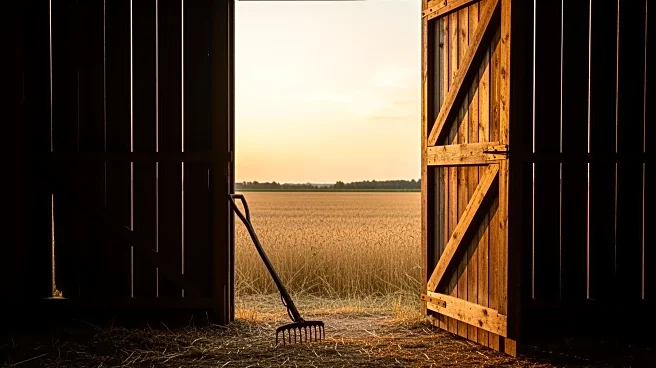What's Happening?
SR University’s School of Agriculture recently organized an orientation program for its newly admitted B.Sc. (Hons) Agriculture students. The event, held at the SRiX Auditorium on the university campus,
aimed to formally welcome students into the SRU agricultural community and orient them towards academic excellence. University leaders, including Chancellor A Varada Reddy, Registrar Dr. P. Venkata Ramana Rao, and Dean Dr. G. Bhupal Raj, addressed the students and their parents. The program included insights into the curriculum aligned with ICAR guidelines and emphasized the importance of both academic and practical learning. Students participated in a farm and agriculture block visit to gain hands-on experience in fieldwork and experiential learning.
Why It's Important?
The orientation program at SR University is significant as it sets the foundation for the students' academic journey in agriculture, a field crucial for national progress. By aligning the curriculum with ICAR guidelines, the university ensures that students are equipped with the knowledge and skills needed to tackle modern agricultural challenges. The emphasis on practical learning through field visits prepares students to contribute effectively to the evolving agriculture sector. This initiative highlights the university's commitment to fostering innovation and excellence in agricultural education, which is vital for addressing food security and sustainability issues.
What's Next?
As the students embark on their academic journey, they are expected to embrace technology-driven learning and contribute to advancements in the agriculture sector. The university's focus on both academic and practical learning will likely lead to the development of skilled graduates who can address emerging challenges in agriculture. The students' engagement with hands-on fieldwork will continue throughout their studies, providing them with the necessary experience to innovate and drive progress in the industry.
Beyond the Headlines
The orientation program reflects a broader trend in agricultural education, where institutions are increasingly integrating practical experiences with academic learning. This approach not only enhances students' understanding of theoretical concepts but also prepares them for real-world applications. As agriculture faces challenges such as climate change and resource management, educational programs that emphasize experiential learning are crucial for developing future leaders in the field.








